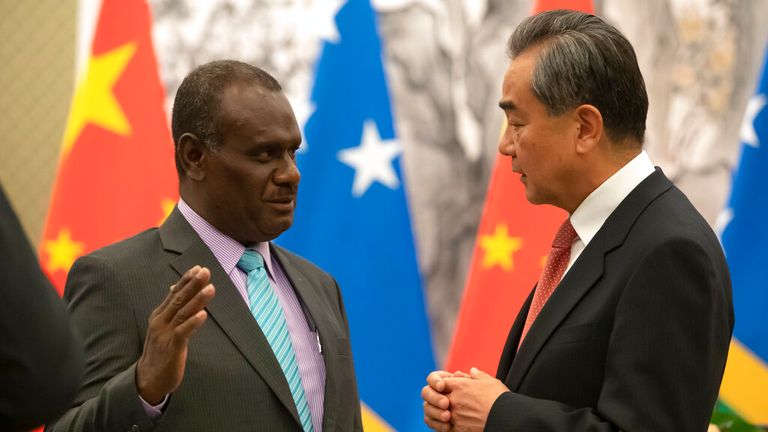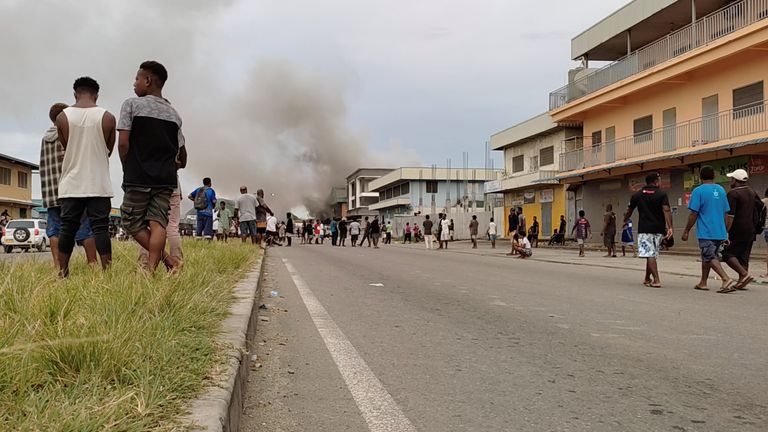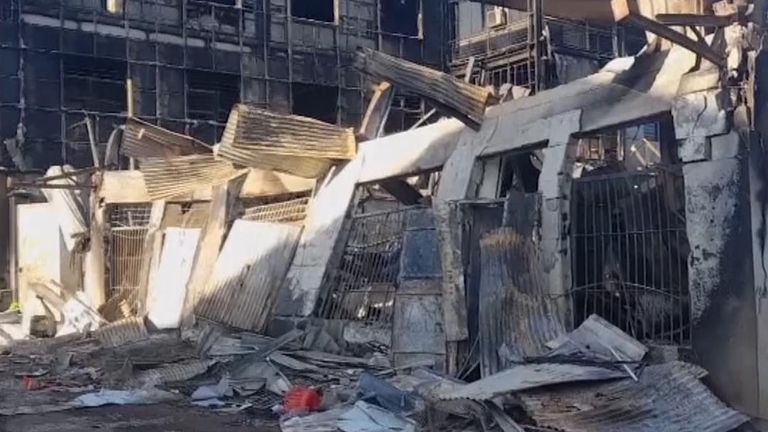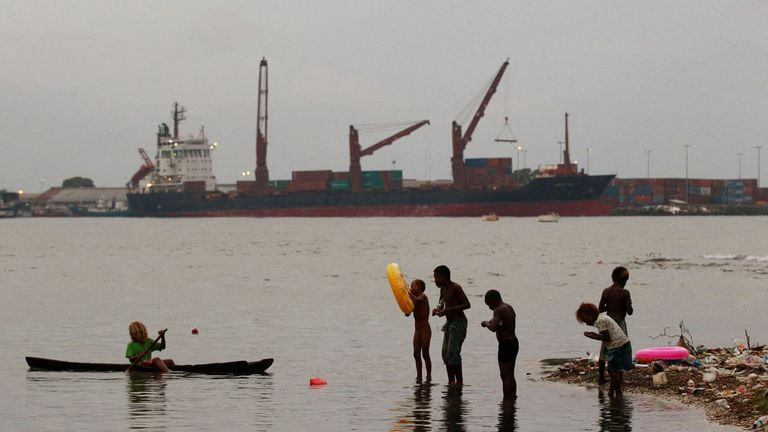Australia and New Zealand concerned over security pact that could see Chinese troops posted to the Solomon Islands
A leaked document suggests China is seeking an agreement that could give it a long-wanted military presence in the Pacific - a region described by Australia as its "own backyard".
Friday 25 March 2022 12:32, UK
Australia and New Zealand have concerns over security in their "own backyard" after it was revealed China is planning a pact with the Solomon Islands that could allow Beijing to deploy troops there.
A leaked document suggests China is seeking an agreement that could give it a long-wanted military presence in the Pacific - a region described by Australia as its "own backyard".
Australian Prime Minister Scott Morrison said the potential deal is an example of "the constant pressure... that is coming into the region from interests that are not aligned with Australia's and not aligned with those of the Pacific."
Mr Morrison insisted Australia wants "a free and open Indo-Pacific" and said he will wait to see how the agreement progresses.
New Zealand has also raised concern about China's move.
Foreign minister Nanaia Mahuta said it "could destabilise the current institutions and arrangements that have long underpinned the Pacific region's security".
The Solomon Islands are considered strategically important to Australia and New Zealand for shipping lanes and economic ties.
Canberra signed its own security pact with the Solomon Islands in 2017.
And last November, 200 police and soldiers from Australia, New Zealand, Fiji and Papua New Guinea were deployed to the Solomon Islands' capital Honiara to help restore order after riots broke out.
The peacekeeping forces secured public infrastructure including the port and airport and both Australia and New Zealand continue to have police there.
Meanwhile, the government of the Solomon Islands has confirmed it has reached a policing agreement with China and a wider security pact is still being discussed.
A draft copy of the broader deal may allow Chinese armed police and the military to travel to the Solomon Islands in the event of riots or a disaster.
The Solomon Islands has defended its moves to deepen its ties with Beijing.
In a statement, it said: "The government recognises the state's responsibility of protecting its people from fear and to live in dignity."
Meanwhile China's Foreign Ministry has said it supports the Solomon Islands efforts to "maintain social order" by co-operating in "police affairs and law enforcement".
Foreign ministry spokesman Wang Wenbin called on countries to look at the pact "objectively and calmly".
He said: "Some politicians on the Australian side have published some fallacies of so-called 'Chinese coercion' and deliberately created an atmosphere of tension."
Over the last two years the diplomatic relationship between Canberra and Beijing has hit an historic low point with no senior ministerial contact between the two countries in more than two years.
An ongoing trade dispute between the countries has hit Australia's barley, lobster, wine, beef and coal exports to China.






